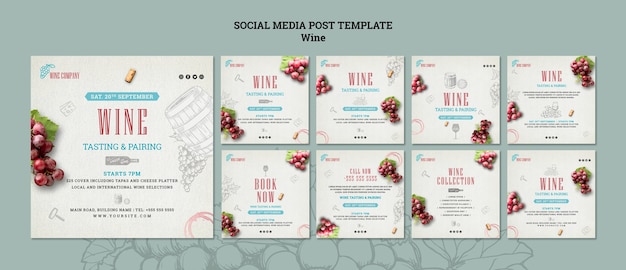Exploring the Nutritional Benefits of Red Wine

Red wine is packed with antioxidants, which can help protect your cells from damage.
Did you know that red wine contains a compound called resveratrol, which has been linked to various health benefits?
Red wine is a great source of polyphenols, which have anti-inflammatory properties.
Moderate red wine consumption has been associated with a lower risk of heart disease.
The tannins present in red wine can help improve digestion by stimulating the release of digestive enzymes.
Red wine contains several minerals such as potassium, magnesium, and phosphorus, which are essential for maintaining healthy bodily functions.
The combination of flavonoids and resveratrol in red wine may help combat oxidative stress and reduce the risk of certain chronic diseases.
Enjoying a glass of red wine with a meal can enhance the taste experience and make your food more enjoyable.
Red wine pairs beautifully with a variety of cheeses, bringing out their flavors and creating a perfect combination.
The deep red color of red wine comes from pigments known as anthocyanins, which provide potential health benefits.
Red wine can be enjoyed in moderation as part of a balanced diet and healthy lifestyle.
Choosing a high-quality red wine can ensure that you are getting the maximum nutritional benefits.
Red wine is a beverage that can be savored, allowing you to slow down and enjoy the moment.
The aromas and flavors found in red wine can be complex and intriguing, making every sip a unique experience.
Exploring the Nutritional Benefits of Red Wine part 2
Red wine has been enjoyed for centuries, and its allure continues to captivate wine enthusiasts around the world.
The health benefits of red wine are often attributed to its ability to increase levels of HDL (good) cholesterol.
Red wine contains resveratrol, which has been shown to have anti-aging properties.
The exquisitely balanced acidity in red wine can enhance the taste of various foods, from juicy steaks to rich chocolate desserts.
Red wine is a versatile drink that can be enjoyed on its own or as an ingredient in cocktails and culinary creations.
The antioxidants in red wine may help protect the brain from oxidative damage, potentially reducing the risk of cognitive decline.
The warmth and comfort provided by a glass of red wine can help you unwind after a long day.
Red wine has been a symbol of celebration and joy throughout history, making it a perfect choice for special occasions.
The moderate consumption of red wine has been associated with a reduced risk of stroke.
Red wine is a timeless classic that adds elegance and sophistication to any gathering.
A glass of red wine can be a delightful companion when enjoying a cozy evening by the fireplace.
Red wine can be appreciated for its wide range of tasting notes, from fruit-forward to earthy and complex.
The rich color of red wine comes from a compound called procyanidin, which has been shown to have potential health benefits.
Red wine is often enjoyed with friends and loved ones, creating memorable and cherished moments.
The velvety texture of red wine can provide a luxurious and indulgent experience for your taste buds.
Red wine is a versatile and vibrant part of the culinary world, lending its flavors to diverse dishes and recipes.
The moderate consumption of red wine has been linked to a reduced risk of certain types of cancer, including colon and breast cancer.
Red wine can be a versatile cooking ingredient, adding depth and complexity to sauces, stews, and marinades.
The bold and robust flavors of red wine can complement hearty dishes, making it a perfect choice for red meat enthusiasts.
Red wine is best enjoyed when served at the appropriate temperature, allowing its aromas and flavors to fully express themselves.
Red wine has been associated with a reduced risk of diabetes, thanks to its potential ability to improve insulin sensitivity.
The art of winemaking combines tradition and innovation, resulting in a diverse range of red wine styles to suit different palates.
Red wine is often enjoyed in the company of friends, fostering a sense of camaraderie and connection.
The phenolic compounds found in red wine may have anti-inflammatory effects, supporting overall health and well-being.
Red wine can be a thoughtful gift that shows appreciation and sophistication.
The aroma of red wine can be captivating, ranging from fruity and floral to spicy and smoky.
Red wine can bring out the complexity of flavors in a variety of dishes, from pasta to grilled vegetables.
The process of swirling red wine in a glass can enhance its aromas and release its full potential.
Red wine is often associated with relaxation and unwinding, making it a popular choice for winding down at the end of the day.
The natural acidity of red wine can help cleanse your palate, preparing it for the next bite or sip.
Red wine offers a vast world of exploration, with different grape varieties, regions, and aging techniques to discover and enjoy.

